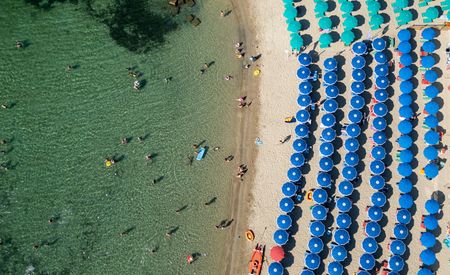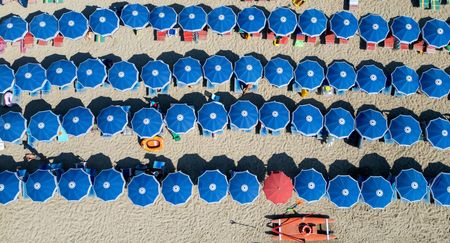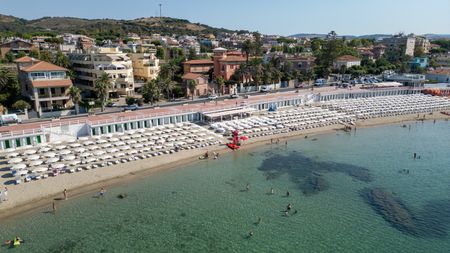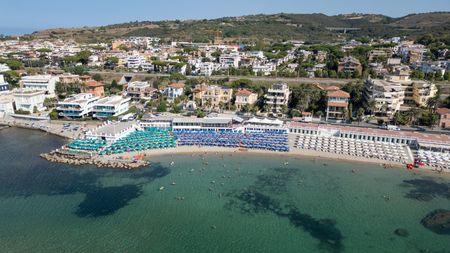By Angelo Amante and Giuseppe Fonte
ROME (Reuters) -Italy approved on Wednesday a plan to put 28,000 concessions for lucrative beach bars and clubs up for bidding by June 2027, in a long delayed response to a European Union demand for Rome to open the sector to newcomers.
Businesses that rent umbrellas and sell food on Italy’s 7,500 km (4,660 miles) of coast are traditionally small, family enterprises that pass licenses down from one generation to the next.
Many Italians regard seaside outings as a summer ritual, and beach clubs generate revenue of about 2.1 billion euros ($2.29 billion) a year in Italy, according to consultancy Nomisma in 2023.
Entrepreneurs who want a slice of the business say they are unfairly locked out. Current concession holders have contended that family operators keep costs for beachgoers down and prevent treasured beaches from falling into the hands of big chains that might not respect local traditions.
Beach clubs, where tourists can sometimes pay more than 30 euros a day to rent a chair and umbrella, opened two hours late on Aug. 9 in some places as managers protested the new plan.
The EU ordered Italy in 2006 to hold public tenders for beach licences, but successive Italian governments of all colours have dragged their feet despite pressure from Brussels.
Under legislation approved on Wednesday, existing seaside business licences would remain valid until September 2027, a statement from Prime Minister Giorgia Meloni’s office said.
The deadline could be further postponed to March 2028 if there are “objective reasons” to delay the tender process, according to a draft decree seen by Reuters.
Operators who lose their concessions will be entitled to compensation to be paid by the new holder.
Italian authorities will evaluate bids on criteria including whether the bidder earned their primary income from a beach concession in the previous five years, which could help some current operators retain their licenses.
The government received an average of 102 million euros per year from operating licenses between 2016 and 2020, under the latest data from Italy’s Audit Court.
(Editing by Philippa Fletcher and Cynthia Osterman)













